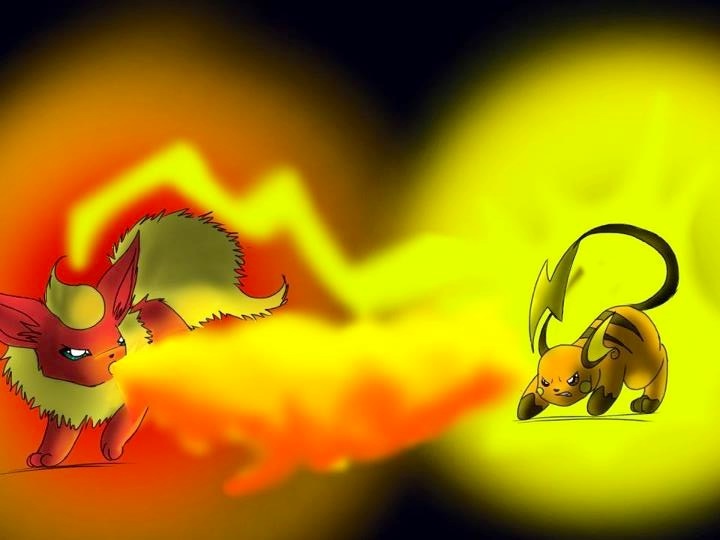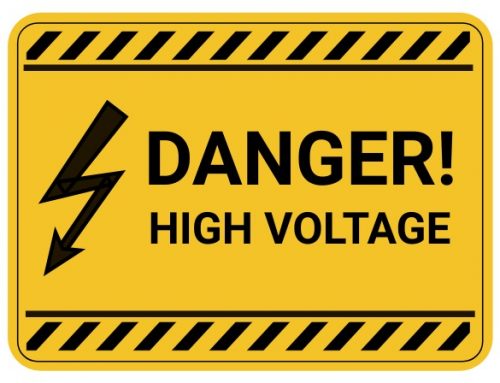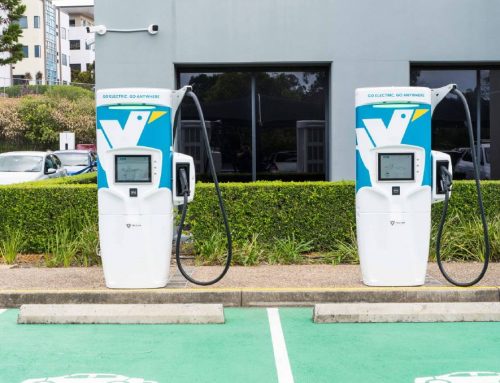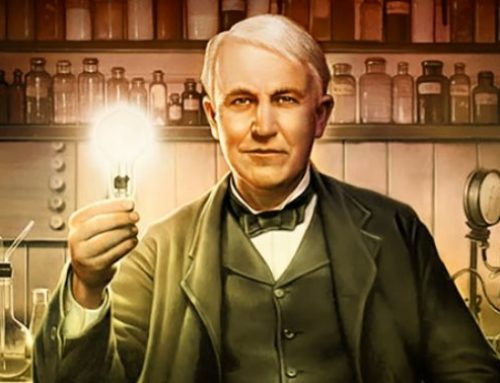As humans we are more familiar with electricity than Faraday, Franklin, Tesla, Edison or any other notable may have us believe. In 600BC, Greece, Thales discovered that rubbing silk against amber (ëelectron in Greek) attracted feathers and other light objects; thus the words ‘electricity’ and ‘electron’. They – and others – certainly named it, exclaimed it and tamed it.
Like all good things, it was already within us.
We may not have known it, but we grow with it, because of it and alongside it; galvanised by Mary Shelley in her 1818 scientist Victor. (See what I did there? Electricity is electric and eclectic!)
Sodium, magnesium and calcium all hold electrical charge, and the body uses these ions. These bioelectric currents generate impulses and conduct process to allow us to be human – metabolised, thinking, sensate sapiens that physically function mostly on automatic.
It’d be nice to be able to say that we’re sapient sapiens, but that surely stretches the point. A snapshot would be of the snapped and shot wiring of the strangely circuited world in which we live. (Or lives within us – belief is bioelectric.)
Recently, despite a lifetime of the very best of the best, a very powerful, very elderly elder ceased to live. Across a world that stopped for much more than one day, countless grieved and cried; while across the world, countless climate refugees cease to be able to live, and the powerful don’t care too much to one day stop that.
We care more about reign than rain, obvention than intention and have a World Happiness Report that’s only ever been won by the same three countries out of a hundred-and-fifty.
If that sounds bad, there are 251 countries and territories in the world – according to the United Nations.
The United States however, recognises only 196. I don’t actually know how that happens, and nor do I care; I like the image it gives of Colonel Sanders peering into the distance proclaiming that there’s nothing, nothing whatsoever there at all (ever), amid a sea of chickens with their clucky hengines running.
So not only do 151 countries not even make the grade to make the grade, fifty-five don’t even make the grade to make the grade they’re never going to make. Akin to me considering confusion should Elle MacPherson and I be in the same room. On any scale, that measure would be exactly the same were it me and SpongeBob SquarePants. Or any other of the countless I don’t care to stop and grieve over in the heady world of erroneous comparisons.
Maybe the uncounted, unrecognised-as-a-country numbers suggest that more than half of the world is far too happy and ethically advanced to bother entering the race. You know; letting the lesser competitor win. Understanding the value of how life-changingly great they’ll feel about themselves and thus the world, rather than the cost of the loss. And not because of some smug guarantee of having much bigger Humpty Christmas barramundi fish to fry, but with genuine altruism without algorithm.
Pride without product placement; service to others without self-serving selfies.
The count-them-on-one-hand successful Happiness Report winners measure affluent against affluent. Those who’d gladly take their place have to keep choosing between eating and heating. For some, that exasperated fridge-opening cry of “There’s nothing decent to drink in this place!” refers to clean water throughout most of their country.
It’s not a lifestyle choice. At least according to Maslow. And like the UN and US abacus debacle, there are sure to be differing opinions on that. Not put on the table but across it, at swanky black-tie dinners where deep discussions of beluga is caviar, rather than our endangered species of whale.
Clearly, none of what you’ve just read could happen without electricity. The significance of electricity is a given. Moreso if you’re one of the 2.1 billion people living without it; who don’t even know they are but one of so many because ‘energy poverty’ precludes them.
There are no hashtags in the dark.
Only 9% of Burundi has access to power. With an 87% rural population, it’s a blinding clue to how it is the poorest country in the world. Solar powered mini-grids have the affordability and potential for electricity and the replacement of commonly used diesel generators, but climate change brings whole new parameters. Even Nigeria – Africa’s largest economy – has electrical grid access to only 54% – with instability a huge problem. Thirty or more outages a month means that businesses are severely constrained.
Unless, some would say, they’re phone rooms, full of stranded twin flames stuck in airports collecting transferred money, to be paid right back as soon as customs finally clears the inheritance … and the combination to the safe is retrieved from the suddenly-coma-struck keeper of it.
For those whose world most certainly ceases without electricity (thanks, blackout!) it comes as a surprise that billions of people have never experienced that sharp inconvenience and outage outrage. It is an alien to them as neck pain from the Imperial State Crown is to each of us. (With the exception of King Charles III who could be reading this. He has electricity.)
Billions of people in the world are still reliant on fire for cooking, heating and basically, their economy. Fire has a forgotten magnitude for those who only really see it displayed at an opening ceremony or consuming a house; it has a reach that spans 1.5 million years in our evolution, doing what it’s always done, since it first appeared in the late Silurian Period, about 420 million years ago.
Before the ol’ “…take that, mealy 18th century electricity!” lightning would have started it.
So special is flame, it took 75 million years for fluctuating oxygen levels to reach at least 15% for the first bushfires to occur. Prior to this Carboniferous Period (funny, I know) even when lightning hit, earth’s atmospheric conditions didn’t allow for the oxidation process that creates the heat and light of a fire.
Much can be reasonably speculated about the human capturing of fire. It was most likely opportunistic, and after many interactions of following fires because of the food and hunting opportunities it afforded. The consequent ability to conserve a fire with slow-burning fuel like dung meant protection from predators, more easily digestible and tastier protein, smoke insect repellent, and warmth.
Evidence of habitual fire use comes from a single hearth in Qesem Cave, Israel, dated between 400,000 and 300,000 years ago, with unambiguous indications of meat roasting.
It’s a funny world when a hundred thousand years don’t matter but 96 and 70 do.
Fire allowed us to expand and enrich our diet and therefore our brain. Apparently the best way to a man’s brain is through his mouth. Although the Egyptians gave the nose a red-hot go with the help of a straw.
Five thousand years later, with only 250 of those with power, we’re using neurosurgical tools through the thin thread of an endoscope that has a light and a camera on the end. After the ionising radiation of CT, and the magnetic fields of MRI scans.
That’s progress.
The means by what’s in my brain getting to yours, involves a torrent of electrically charged chemicals, nerve and neuron impulses merging with currents travelling through wires, transmitters and hardware, and back to the chemical, physical and neurological. It’s so complex it makes the NorNed cable seems like piece of wet string.
All of this has happened since Captain James Cook had a US-take on recognition of peoples and their land. Christopher Wren and Isaac Newton had been dead for around the same time as Leonard Bernstein. In four years there’d be telegrams, and oxygen will have been discovered.
The Age of Enlightenment (notwithstanding our contemporary guffaws about telegrams and oxygen) was enlightening. Reason ruled superstition; science was sceptical of faith, and the accepted beliefs were questioned. Voltaire was voluminous. Rosseau replete. Diderot demiurgic. Fathered by Newton and John Locke, it was an electric time, borne by fire.
Essentially, fire is electricity. And electricity is fire.
Both are a flow of charges, both have electrons. Fire is a chemical reaction, certainly, but that in itself is just a flow of charges between atoms and molecules. Flame is a flow of ion rich plasma, producing a surrounding magnetic field, just like electric current. A strong enough magnet will indeed influence the behaviour of fire.
Fire conducts electricity. Which is why bushfires attract lightning strikes. The ions in the flames are more electrically conductive than the surrounding nonionic air.
Electricity is fire. Lightning is a channel of highly ionised plasma of extreme, and extremely short-lived, temperature.
Fire and electricity mirror each other. Transferral of charge is the similitude; with the crucial element of these two energies being that the medium of one, shifts in the other.
To pose the question of which has influenced mankind more, is to ask whether man or woman has been the greater force in getting from being Homo erectus to knowing homozygous in just two million years.
Human creativity appeared suddenly – until 40,000 years ago, anatomical and behavioural changes proceeded hand-in-hand, and very, very slowly. At that point, while physical form remained remarkably stable, accelerated behavioural change marked the dawn of creativity. No longer were we simply a large mammal, but a propitious force of abstract and symbolic thought. More advanced tools were being made, the dead were buried with ceremony, and body ornamentation and cave paintings denote a self-awareness previously unrealised and unexpressed.
The neurological hypothesis, is a chance genetic mutation that critically rewired the brain and allowed significant progress in speech. Communication enabled the conception and modelling of complex natural and social circumstances, and gave the ability to invent and manipulate culture.
Critics decry that this as far too simplistic, and certainly unprovable through either examination or experimentation of relevant human fossils. Skulls from that period show no change in brain size; and to show a genetic change in the brain’s functioning is impossible.
According to Connecticut anthropologist Dr Sally Brearly, “The earliest Homo sapiens probably had the cognitive capability to invent Sputnik, but they didn’t yet have the history of invention or a need for those things.”
Ergo, with necessity the mother of invention, the man-or-woman analogy can be declared settled. For a straw man at least. The Cowardly Lion and the Tin Man may have other ideas.
Without fire, there would not have been the nutrition, and therefore the neurological, conceptual, and social expansion that harnessed electricity. Logically then, DeMorgan’s Law would suggest that the utilisation of fire implemented the greater change … until you count the bioelectrical impulses that had us able to do that.
Modernity has us so primed for making choices, taking sides, and the divisiveness of pitting something against another, that we forget sometimes there’s just no need. Among the trillions of other things electricity allows us to do, it can physically alter the brain, start the heart, give pain relief and produce orgasms.
Fire in the soul does the same.
Without the vital flint of Lord Byron’s suggestion at the Villa Diodati one night as lightning flashed across the lake’s surface, Mary Shelley could never have worked the powerful engine of Frankenstein’s hopes to “infuse a spark of being into the lifeless thing that lay at my feet” by the flickering flame of a candle.










